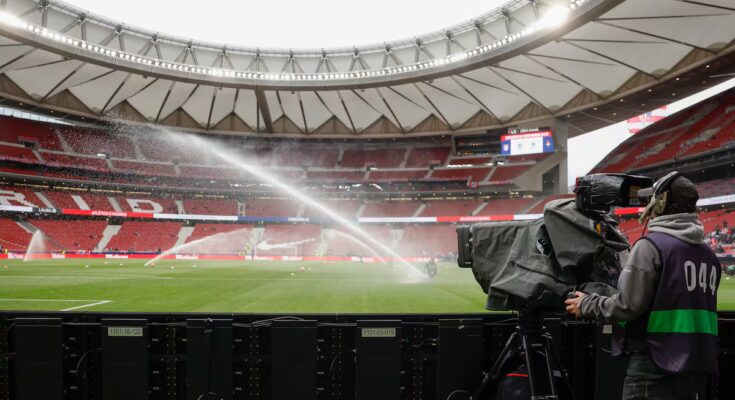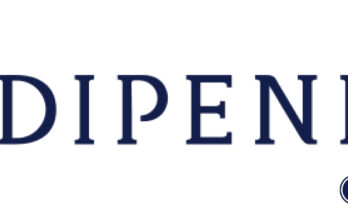LaLiga gives a further twist to its anti-piracy strategy. The association of football employers, which has just started the procedure for the assignment of audiovisual rights in Spain starting from the 2027-2028 season, increases the demands that operators who acquire the competition will have to satisfy in this matter, both at a technical and legal level, thus taking an active role in the legal strategy developed by the body chaired by Javier Tebas.
As indicated in the conditions document published by LaLiga, the television partners to which it assigns the rights will be obliged to accompany it in promoting legal actions against distributors of fraudulent signals and their users. The procedure, which is currently receiving offers and which is expected to be concluded in December, is based on a premise already present in the previous competition: that these operators must “intervene as injured parties” in the proceedings opened against third parties who emit the signal fraudulently, whether or not solicited by La Liga.
However, the current procedure places this requirement and gives television operators a proactive role. For example, it requires them to commit to taking the initiative and promoting judicial “and extrajudicial” actions, accompanied by LaLiga, so that the blocking of intellectual property carried out as part of the anti-fraud strategy is “effective”. In this context, the employers’ association emphasizes that its partners must work together so that the courts of justice adopt live dynamic blocks and so that they reach “their maximum effectiveness in the shortest possible time”. That is, a connection can be blocked immediately and automatically if it is detected to be distributing or sharing competitor content fraudulently, via VPN, reverse proxy or DNS services.
Blocking IPs, the addresses that show the traceability of an Internet connection, is one of the main measures that LaLiga, together with Movistar, has implemented to avoid the presence of pirate signals. At the end of October, the Congress of Deputies rejected a non-legislative proposal promoted by the BNG against these blockades. The Galician party asked that they not be “indiscriminate” and not target legitimate sites that have nothing to do with these frauds, as some consumers have reported.
The PNL did not have enough votes, which LaLiga interprets as support for its strategy. He defends that his dynamic blocks are “proportional, surgical and limited” to parties, based on a December 2024 judicial resolution that allows him to do so. “LaLiga has not received any judicial claims arising from the dynamic blocking of IP addresses,” he defended a few weeks ago.
But the rights procedure does not only target those who distribute the signal, but also those who access it. If the successful bidder is a telecommunications operator, such as Telefónica, it must also commit to “actively cooperate” in legal actions aimed at “identifying customers who illegally access audiovisual content through the Internet service”. Among the methods he mentions P2P technology and, explicitly, the Acestream streaming platform; or the card sharingmethod through which a legitimate signal is shared and distributed to third parties who, via decoders, access it fraudulently. A sentence of the Commercial Court n. 8 in Barcelona admitted in 2024 that operators could identify the owner of the legal signal who redistributed and charged it, but not those who connected fraudulently.
On the other hand, if the successful tenderer is a streaming or OTT platform, as Dazn currently is, it must also undertake to block domains, sites and IP addresses “without the need for judicial intervention”, something already provided for in the 2021 procedure.
LaLiga, interviewed by this newspaper, defends that these are clauses linked “to a minimum of diligence for the conservation of the audiovisual product”, and also recalls that fraud “constitutes the most significant risk for the audiovisual industry”. An annual impact of up to 700 million euros on its income generating capacity is estimated. For years it has become the main flag of its president, Javier Tebas, with the aim of ensuring that the product does not suffer a devaluation of its emission rights, and which has led to a direct clash with the Internet giant Cloudflare. The current agreement in Spain, where Telefónica and Dazn are in the hands, guarantees the clubs around 1,000 million euros per year. If international rights are counted, the amount exceeds 1.8 billion.
CNMC objections
The National Commission for Markets and Competition (CNMC) published a report last Thursday in which some points of the rights assignment process are discussed, which included some of the obligations that successful tenderers must undertake.
Reference is made to this commitment to intervene in the legal proceedings of operators as injured parties. This, the Competition claims, “represents an unjustified interference in the legal strategy and normal business functioning of a third party, may lead it to incur expenses harmful to its interests and exceeds the scope” of the decree which allows La Liga to centrally market its rights.
This will also require successful bidders to apply “at least” a dozen technical measures to protect the signal from fraud. Among the new features, the procedure mentions key rotation systems, measures to prevent image and audio capture, anti-VPN and geoblocking systems, double authentication factors so that users provide two forms of verification to access their account, or a payment method validation system limited to the territory where the matches are broadcast, as well as “measures to verify the location of subscribers”, among others, such as invisible watermarks on source images.
In this regard, the CNMC indicates that LaLiga must guarantee the “necessity and proportionality” of geoblocking obligations and questions the requirement that “at least” operators must apply these 12 measures, which implies that employers can request additional ones and with “the corresponding cost associated with the successful tenderer”.



